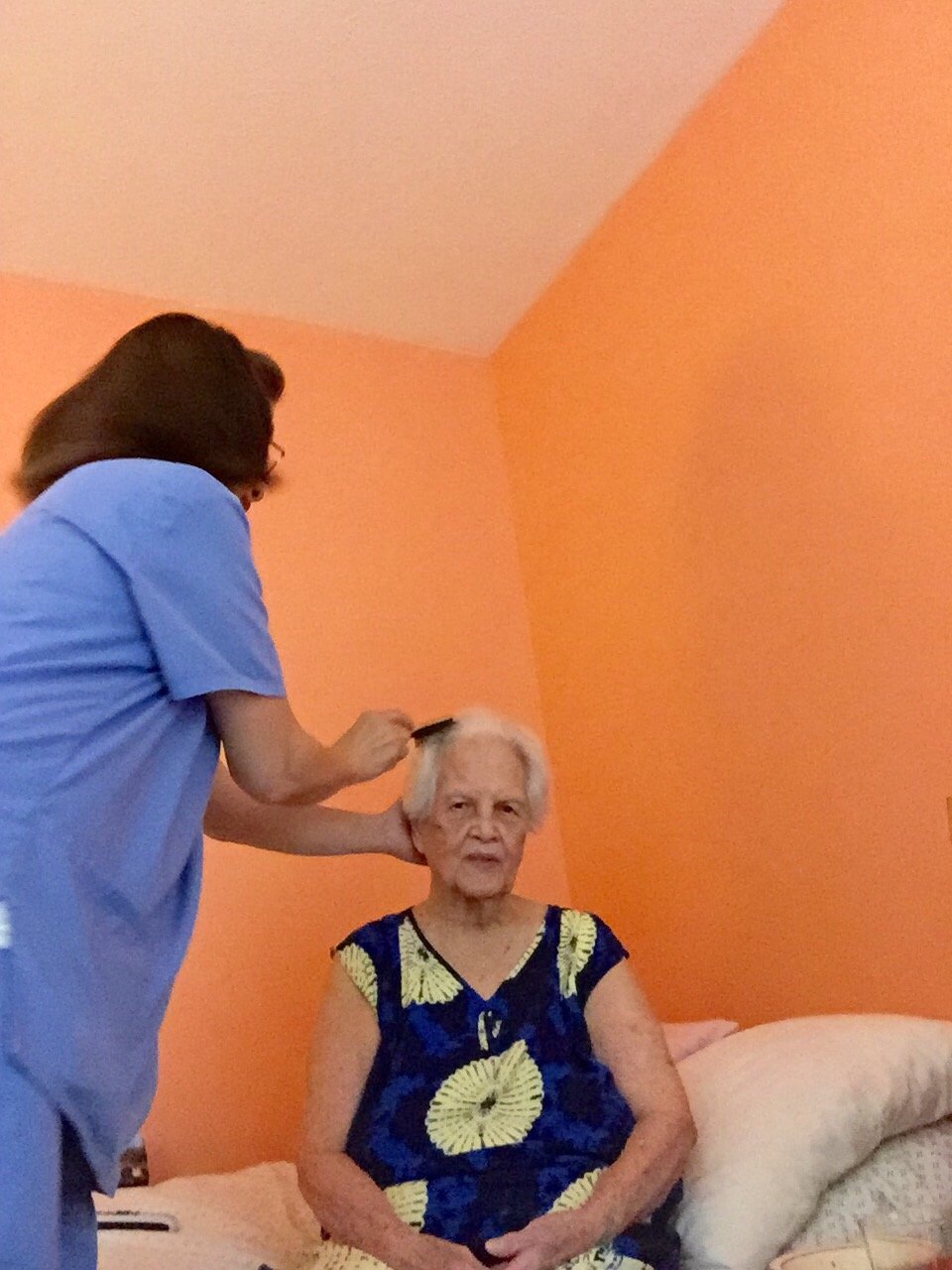7 Signs or events that tell you it’s time to hire a caregiver
by Megan Marolf | Aug 16, 2021 | family support, Family caregiving, Paid caregiving | 0 Comments

The statistics might not be so surprising for family caregivers.
About 50% of people over the age of 65 will need some type of long-term care in their lifetime.
That’s half of our population!
Part of aging involves accepting help, and knowing when to ask for it. But if your loved one isn’t able to do that for themselves, here are some events and signs that tell you when you should hire a caregiver.
Keep in mind that every family situation and senior has their own unique needs, so this is more of a guide than a prescription for care.
1. A visit to the ER for the wrong medication intake
Older adults experience the highest number of emergency department visits for adverse drug effects. A study from the National Institutes of Health found that about 35% of emergency department visits for adverse drug reactions occurred among people 65 and older.
Missing medications or the wrong prescription intake can lead to emergency room visits. A caregiver can help your loved one stay on track with their prescription, and prevent the wrong dosage from happening.
2. You notice a lack of cleanliness at your last visit
This could include:
- Spoiled food in the fridge- this could mean your senior is eating bad food or can’t make it to the grocery store without help.
- A dirty bathroom or other living spaces
- Not caring properly for pets
Basically, if you wouldn’t feel comfortable living in their environment, then it’s probably time to get professional help.
It could be that you just need to hire a cleaner to come once a week, but if you notice other issues, then you might need the help of a caregiver to help you with activities of daily living (ADL).
3. You notice a stack of bills and other mail on the counter

Most people loathe going through the mail (I’m assuming) and sorting through bills that need to be paid.
So seeing them on the counter for a couple days isn’t that alarming.
But if you see your loved one neglecting mail and other bills on a regular basis, and if they don’t have a good explanation for why it keeps happening, it could mean they need help with keeping their affairs in order.
A pile of bills on your parent’s counter could also be more than a sign of forgetfulness. Check with their doctor if this could be a sign of memory loss.
4. You notice an inability to maintain personal hygiene
If on your last couple of visits you notice your loved one has bad breath, body odor or that they don’t look as put together as they usually do, then this could be a sign of overall declining health.
A caregiver can help your loved one make sure they brush their teeth, shower regularly and help with other personal grooming.
5. You don’t know how to react to a difficult situation
Many seniors require professional help due to mental decline.
A telltale sign of needing professional help is a confrontation or an unusual interaction with your loved one that you don’t know how to handle, or that you don’t feel equipped to handle.
Dealing with another person’s mental health issues, medications and emotional support often requires more than a family caregiver can provide.
Paid caregivers are trained to interact and care for seniors with dementia and Alzheimer’s, who at times may be combative, confused and experience changes in personality. These are not small asks, especially if these experiences are becoming more common.
6. Your loved one seems depressed and/or lonely

We all know- especially after the last year and a half- that social interaction is an essential factor of overall health.
If your loved one seems withdrawn, has lost interest in their hobbies or usual activities, or you notice a change in weight, they may be experiencing depression.
Read how seniors can screen for depression HERE.
Unfortunately, depression is common among seniors. But this doesn’t mean we have to accept it as a normal part of aging.
A caregiver can provide meaningful interaction and companionship while your loved one ages in place. Another past blog covers how caregivers can play an integral role in helping your senior treat depression.
Mental health is essential to overall health.
7. A personal feeling of overwhelm

We’ve covered again and again what an important and exhausting job caregiving can be.
You already have plenty of responsibilities without an aging parent. Maybe you work full or part-time and have kids to take care of. Whatever your situation, caregiving adds another level of responsibility and stress to your daily life.
Are you wondering if you’ve reached your breaking point?
When someone doesn’t have time to even care for themselves and make sure they’re health, then it makes the job of caring for someone else that much more demanding and strained.
Even if hiring a full-time caregiver isn’t in your budget, there are ways to get professional help. Check out our past blog to help you identify if you have caregiver burnout.
What to do next?
It may be hard to confront that your loved one needs professional caregiving help. But it’s more difficult to see them not living as comfortably and healthy as they could be.
Talking to a caring and knowledgeable representative from a home care company can help point you in the right direction and answer some important questions about home care.
As we’ve covered in a past blog, it’s really never too early to start planning to age in place.
You might be surprised at the number of care options available to you. Give us a call at the number below to get more information.
You can also check out our care options HERE.
Megan Marolf writes about senior topics and outdoor recreation from her home base in Seattle. You can read more about her here.
Resources:
https://www.ncbi.nlm.nih.gov/pmc/articles/PMC6490178/
https://www.morningstar.com/articles/957487/must-know-statistics-about-long-term-care-2019-edition


0 Comments